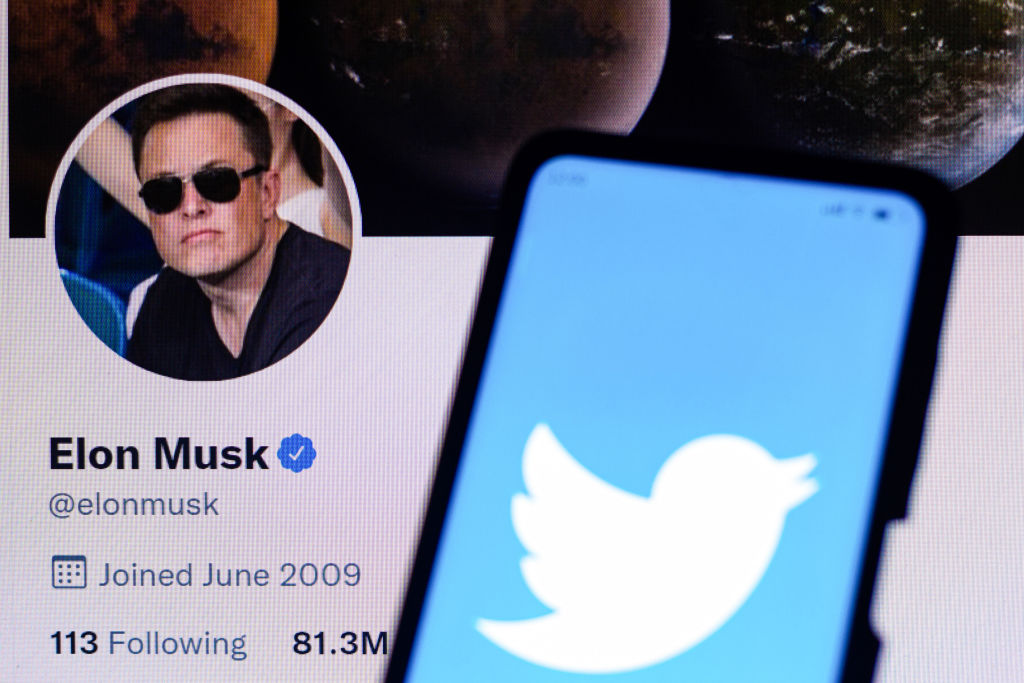A cloud of soulless bots has devoured our grandest dreams. How do we live now?
Bringing Down Temples

Elon Musk is not going to save humanity, but decoupling Twitter from the transhumanist project would be a positive step.
Technology is not God. Technology will not save us. As long as Elon Musk remembers these two things, he stands, as Twitter’s new owner, to save us considerable time and energy in rallying online to preserve Americans’ way of life, their constitutionally guaranteed form of government, and their humanity itself.
Musk was right when he said that “free speech is the bedrock of a functioning democracy, and Twitter is the digital town square where matters vital to the future of humanity are debated.” But fundamental political speech is not free simply in virtue of its being unsuppressed and unpunished. It is only truly free when citizens are free from compulsory speech imposed and coerced from above.
It is this latter kind of unfree expression that has become the founding logic of America’s alien new regime, which sees and uses technology primarily as a tool to impose a new kind of theocracy on the American people, complete with its own flag, its own creeds and liturgies, its own priestly caste, and its own gods and temples. This theocracy has concentrated nearly all established institutional power into a comprehensive system inimical to free speech and American life, mandating mass participation in a wokeness ever more cybernetic, and a cybernetics ever more woke. This recursive process can point only toward a universal and homogenous transhumanism, and the obliteration of America and our humanity alike.
Whether Musk has purchased Twitter to strike down this great serpentine movement remains to be seen. Certainly, at his best—promoting natalism, warning against uncontrollable AI, breaking up with Grimes—he has signaled a desire to champion humanity. At the same time, his business interests in these choices are quite clear. An Earth with radically fewer people will make going to Mars seem inessential. And there’s no better way to get billions of people to put chips in their heads than to convince them the alternative is Skynet.
In fact, Musk’s apparently oddball conviction that Mars should be a direct democracy makes sense when you consider that the direct democracy he has in mind is a kind of cyborg collective consciousness, and that Twitter is a rough and preliminary model that must first be put into passably working order for his larger vision to become at all possible.
Yet what plays on Mars does not always play in Peoria. The ambivalence of many Americans toward technology suggests that the graft of woke transhumanist theocracy will not take on this body politic, not simply because it’s too woke, but because we remain more devoted to our humanity than do even the most well-intentioned technologists. Musk’s reference to his post-Grimes setup as a “tech monastery” underscores what’s at stake, especially for those Americans whose lives are rooted in a religious perspective.
The role of the Babylon Bee in fueling Musk’s motivations is a significant signal, and many now thrill to see someone strike a successful blow against a key instrument of the regime. Musk stands at a crossroads: Without soul, our desperately needed American dynamism will spiral into worship of power and perversity—a lesson as old as humanity which must be remembered again today above all. Technology, which promises salvific innovation on a Promethean scale, must be brought to heel not only by human hands, but by human souls.
This crucial deed is all the more daunting here in America, where the solution is not so simple as establishing the correct religion and imposing it on man and bot alike. We must find it within ourselves to bear the uncanny cross of the otherwise unbearable tension of life as both a commercial and a faithful people, united but not uniform, evanescent yet eternal. The more Americans accept their unique duty to choose rather than impose responsibility, the more Musk’s Twitter might reflect the better angels of America’s nature. And the more Musk himself models humility before God and His creation, rather than Borg and Borg’s creation, the closer to hand his visions of interplanetary flourishing may approach. One small step for Man…
The American Mind presents a range of perspectives. Views are writers’ own and do not necessarily represent those of The Claremont Institute.
The American Mind is a publication of the Claremont Institute, a non-profit 501(c)(3) organization, dedicated to restoring the principles of the American Founding to their rightful, preeminent authority in our national life. Interested in supporting our work? Gifts to the Claremont Institute are tax-deductible.
Retrieving our sacral humanity is the only defense against the cyborg vivarium.
Addressing the harms of persuasive technology



